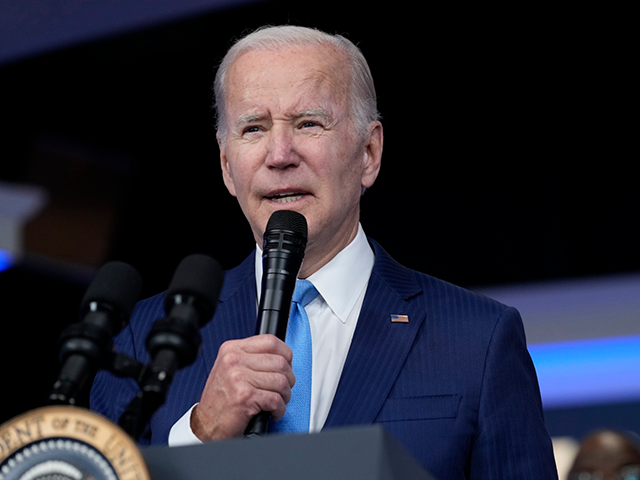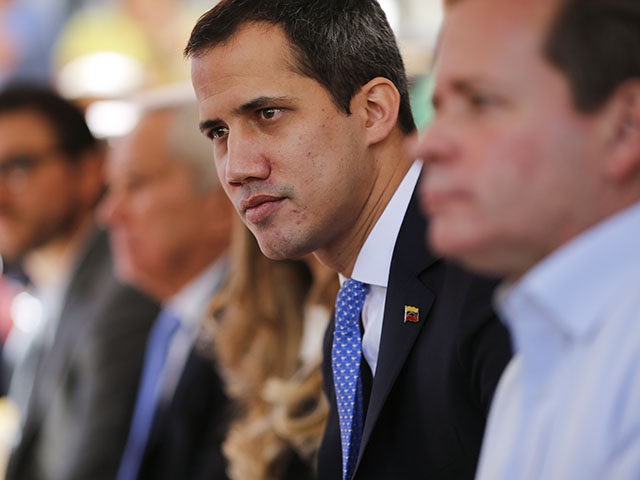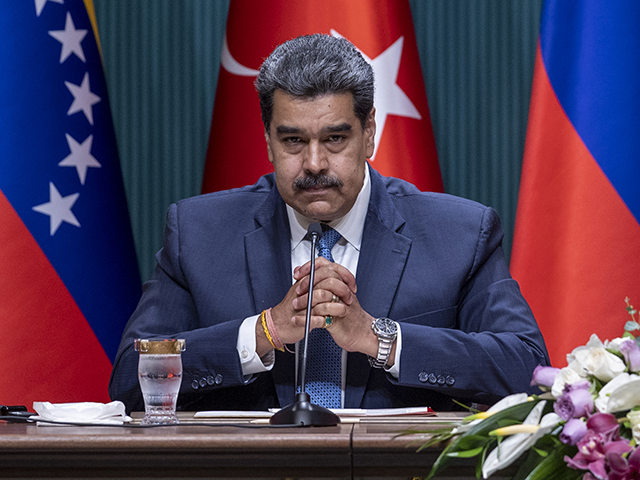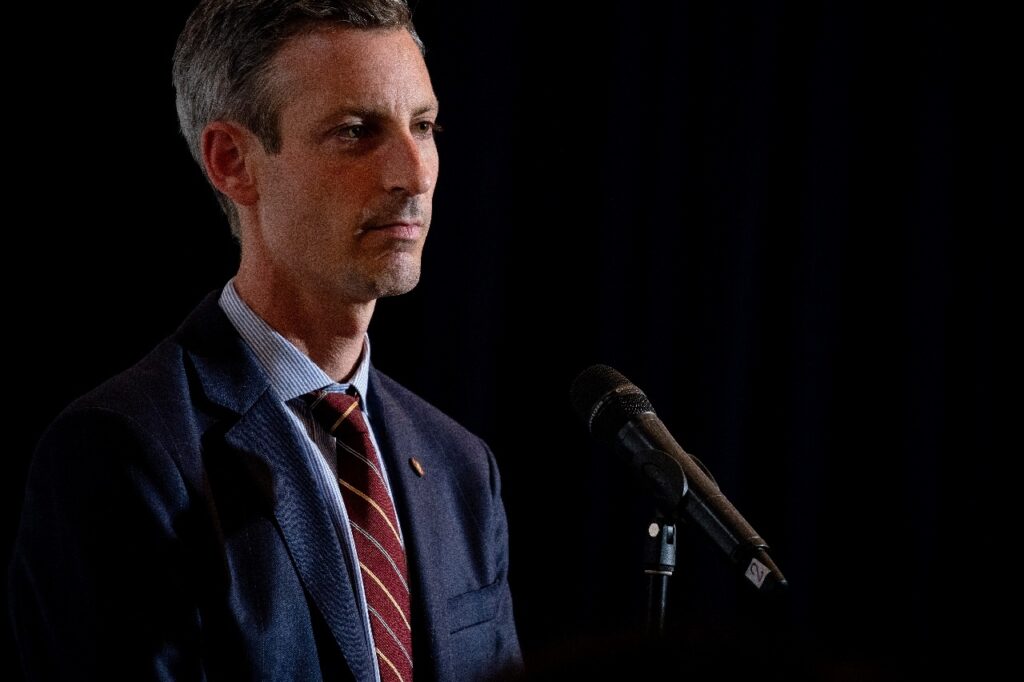The State Department confirmed on Wednesday that the United States no longer recognizes Juan Guaidó as the legal president of Venezuela, the result of the country’s socialist-led “opposition” stripping Guaidó of the title.
The move follows months of leftist President Joe Biden attempting to establish channels of communication with socialist dictator Nicolás Maduro, who retains control of the Venezuelan government despite not being legally in power. Biden has lifted sanctions on Venezuela’s oil industry and liberated Maduro family members convicted of drug trafficking offenses in America since taking office in 2021.
Guaidó’s formal expulsion from the presidency could allow Biden to more directly pursue normalization of ties to the Maduro regime, which enters a decade in power this year with a long record of engaging in human rights atrocities, supporting terrorist organizations, and destabilizing its neighbors.
In a statement to the Washington, DC, website Axios, the State Department confirmed that America recognizes the opposition-led National Assembly’s decision to remove Guaidó in a meeting last month, meaning the official stance of the United States is that Guaidó is not the president of the country. The Axios report did not indicate that the State Department clarified who, if anyone, the country then formally identifies as head of state.
The report was published after State Department spokesman Ned Price said in a statement on Wednesday that the Biden administration supports “negotiations” between Maduro and the socialist opposition towards organizing yet more elections, presumably under the regime’s control without meaningful safeguards against fraud or repression. Negotiations between the “opposition” establishment and the socialist regime have been unpopular among the Venezuelan people for years, polling has consistently shown.

President Joe Biden speaks in the South Court Auditorium on the White House complex in Washington, Dec. 8, 2022. (AP Photo/Susan Walsh)
“The United States supports the Venezuelan people in their desire for a peaceful restoration of democracy through free and fair elections and will continue to support Venezuela’s democratic opposition,” Price said. “We continue to call on Nicolás Maduro to make meaningful progress in the negotiations in Mexico with the Unitary Platform focused on the 2024 elections.”
The “Unitary Platform” is the latest iteration of multiple failed opposition movements, all with the same leadership, previously known as the Democratic Unity Roundtable.
“We will engage with other members of the international community to foster conditions conducive to the conduct of free and fair elections in Venezuela, and to support the objectives of the negotiations in Mexico,” Price’s statement read, later adding, “We support the efforts of the Unitary Platform and other actors to establish democratic order and rule of law in Venezuela.”
Price emphasized that the Biden administration recognizes the National Assembly members elected in 2015 as the only legitimate ones. The composition of the National Assembly, the federal legislative body, has been a source of chaos in Venezuelan politics for even longer than the identity of the president. Most free countries agree with Price that the 2015 legislative elections were the last time a free and fair election season was held in Venezuela, meaning those who won their elections at that time are the only people with a popular mandate to rule in the country. The Maduro regime violently ousted those members from the actual Assembly chambers years ago, however, and has repeatedly assaulted some of the most prominent opposition lawmakers, including Guaidó.
Following the major defeat of Maduro lawmakers in the 2015 election, Maduro announced the creation of an illegal, parallel lawmaking body he dubbed the “National Constituent Assembly” in 2017. The socialist regime initially claimed the assembly, packed with Maduro loyalists, would rewrite the nation’s constitution, but Maduro ultimately dissolved it and held sham elections to replace the true National Assembly. Currently, the Caracas National Assembly headquarters are occupied by a separate group of lawmakers who claim to be the National Assembly, independent from the group elected in 2015.
The 2015 group, which now only meets through the communications mobile app Zoom, is the one that voted to dissolve the Guaidó presidency last month. Guaidó’s presidency thus officially ended on Wednesday as a result of that vote.
Juan Guaidó, formerly a Popular Will socialist party opposition lawmaker, assumed the job of chief executive in January 2019 as a result of socialist dictator Nicolás Maduro failing to vacate the presidency following the end of his term that year. Maduro held a sham election in May 2018 – featuring record low turnout, no meaningful alternative candidates, and dissident repression – that he claimed granted him the right to remain in Miraflores, the presidential palace.
In the event of a president refusing to cede power when his term ends, a situation referred to as a “rupture in the democratic order,” the Venezuelan constitution allows the National Assembly to officially strip the preisdent of his powers and elect an interim president to hold special elections and restore democracy as soon as possible. The National Assembly invoked its powers in 2019 in this way to elevate Guaidó to the presidency.
At its peak, the Guaidó administration received support from about 50 countries, most of them Venezuela’s Western Hemisphere neighbors, and obtained control of Venezuelan state accounts and other foreign assets abroad. Maduro retained support from allieged rogue states such as China and Russia and, pivotally, never lost the loyalty of the armed forces, leaving Guaidó effectively powerless.
Maduro expressed hope in an interview this weekend that Biden would be open to restoring relations with his regime.
“Venezuela is prepared, fully prepared, to give way to a process of normalization of diplomatic, consular, and political relations with this [the Biden Administration] government of the United States and with the governments that may come,” Maduro told the regime-funded TeleSur leftist broadcaster. “We are prepared for dialogue at the highest level, for relations of respect, and I wish a beam of light would come to the United States of America, they would turn the page and leave their extremist policy aside and come to more pragmatic policies with regard to Venezuela.”



COMMENTS
Please let us know if you're having issues with commenting.